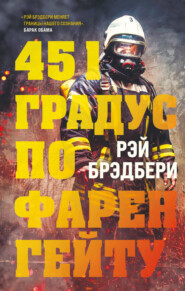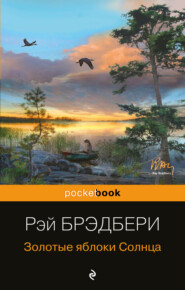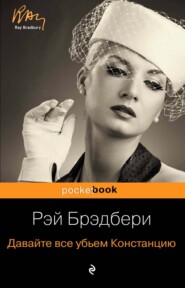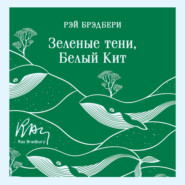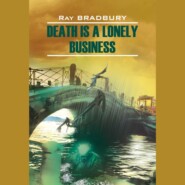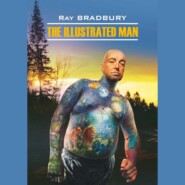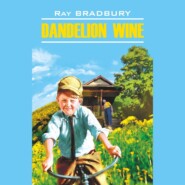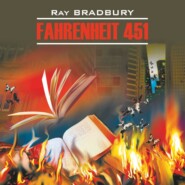По всем вопросам обращайтесь на: info@litportal.ru
(©) 2003-2024.
✖
Now and Forever
Автор
Год написания книги
2019
Настройки чтения
Размер шрифта
Высота строк
Поля
THREE (#ulink_4d73e0c1-0c69-5b19-89d5-05e5fbc9c465)
Because.
Well, now, he thought, as he peered down the tracks. This place isn’t on the map. But when the train slowed, I jumped, because …
He turned and saw a wind-battered sign over the flimsy station that seemed about to sink under tides of sand: SUMMERTON, ARIZONA.
‘Yes, sir,’ said a voice.
The traveler dropped his gaze to find a man of some middle years with fair hair and clear eyes seated on the porch of the ramshackle station, leaning back in shadow. An assortment of hats hung above him, which read: TICKET SELLER, BAGGAGE MASTER, SWITCHMAN, NIGHT WATCHMAN, TAXI. Upon his head was a cap with the word STATIONMASTER stitched on its bill in bright red thread.
‘What’ll it be,’ the middle-aged man said, looking at the stranger steadily. ‘A ticket on the next train? Or a taxi two blocks over to the Egyptian View Arms?’
‘God, I don’t know.’ The younger man wiped his brow and blinked in all directions. ‘I just got here. Jumped off. Don’t know why.’
‘Don’t argue with impulse,’ said the stationmaster. ‘With luck you miss the frying pan and hit a nice cool lake on a hot day. So, what’ll it be?’
The older man waited.
‘Taxi, two blocks, to the Egyptian View Arms,’ said the young man, quickly. ‘Yes!’
‘Fine, given the fact that there are no Egyptians to view, nor a Nile Delta. And Cairo, Illinois, is a thousand miles east. But I suppose we’ve got plenty of arms.’
The old man rose, pulled the STATIONMASTER cap from his head, and replaced it with the TAXI cap. He bent to take the small suitcase when the young man said, ‘You’re not just going to leave—?’
‘The station? It’ll mind itself. The tracks aren’t going nowhere, there’s nothing to be purloined within, and it’ll be some few days before another train takes us by surprise. Come on.’ He hoisted the bag and shuffled out of the gloom and around the corner.
Behind the station was no taxi. Instead, a rather handsome large white horse stood, patiently waiting. And behind the horse was a small upright wagon with the words KELLY’S BAKERY, FRESH BREAD, painted on its side.
The taxi driver beckoned and the young man climbed into the wagon and settled himself in the warm shadow. The stranger inhaled.
‘Ain’t that a rare fine smell?’ said the taxi driver. ‘Just delivered five dozen loaves!’
‘That,’ said the young man, ‘is the perfume of Eden on the first morn.’
The older man raised his eyebrows. ‘Well, now,’ he wondered, ‘what’s a newspaper writer with aspirations to be a novelist doing in Summerton, Arizona?’
‘Because,’ said the young man.
‘Because?’ said the older man. ‘That’s one of the finest reasons in the world. Leaves lots of room for decisions.’ He climbed up onto the driver’s seat, looked with gentle eyes at the waiting horse and made a soft clicking noise with his tongue and said, ‘Claude.’
And the horse, hearing his name, carried them away into Summerton, Arizona.
FOUR (#ulink_df952bae-c88b-5b5c-ac89-cf98d76c6be2)
The air was hot as the bakery wagon moved and then, as they reached the shadows of trees, the air began to cool.
The young man leaned forward.
‘How did you guess?’
‘What?’ said the driver.
‘That I’m a writer,’ said the young man.
The taxi driver glanced at the passing trees and nodded.
‘Your tongue improves your words on their way out. Keep talking.’
‘I’ve heard rumors about Summerton.’
‘Lots of folks hear, few arrive.’
‘I heard your town’s another time and place, vanishing maybe. Surviving, I hope.’
‘Let me see your good eye,’ said the driver.
The reporter turned and looked straight on at him.
The driver nodded again.
‘Nope, not yet jaundiced. I think you see what you look at, tell what you feel. Welcome. Name’s Culpepper. Elias.’
‘Mr Culpepper.’ The young man touched the older man’s shoulder. ‘James Cardiff.’
‘Lord,’ said Culpepper. ‘Aren’t we a pair? Culpepper and Cardiff. Could be genteel lawyers, architects, printers. Names like that don’t come in tandems. Culpepper and, now, Cardiff.’
And Claude the horse trotted a little more quickly through the shadows of trees.
The horse rambled through town, Elias Culpepper pointing right and left, chatting up a storm.
‘There’s the envelope factory. All our mail starts there. There’s the steam works, once made steam, I forget what for. And right now, passing Culpepper Summerton News. If there’s news once a month, we print it! Four pages in large, easy-to-read type. So you see, you and I are, in a way, in the same business. You don’t, of course, also rein horses and punch rail tickets.’
‘I most certainly don’t,’ said James Cardiff, and they both laughed quietly.
‘And,’ said Elias Culpepper, as Claude rounded a curve into a lane where elms and oaks and maples fused the center and wove the sky in green and blue colors, a fine thatchwork above and below, ‘this is New Sunrise Way. Best families live here. That’s the Ribtrees’, there’s the Townways’. And—’
‘My God,’ said James Cardiff. ‘Those front lawns. Look, Mr Culpepper!’
And they drove by fence after fence, where crowds of sunflowers lifted huge round clock faces to time the sun, to open with the dawn and close with the dusk, a hundred in this patch under an elm, two hundred in the next yard, and five hundred beyond.
Every curb was lined with the tall green stalks ending in vast dark faces and yellow fringes.
‘It’s like a crowd watching a parade,’ said James Cardiff.
‘Come to think,’ said Elias Culpepper.
He gave a genteel wave of his hand.






